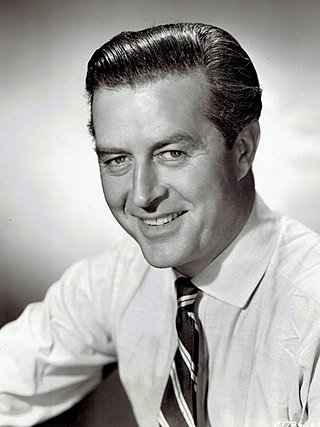
Ray Milland was a Welsh-American actor and film director. He is often remembered for his portrayal of an alcoholic writer in Billy Wilder's The Lost Weekend (1945), which won him Best Actor at Cannes, a Golden Globe Award, and ultimately an Academy Award—the first such accolades for any Welsh actor.

Hugh Ryan "Jack" Conway was an American film director and film producer, as well as an actor of many films in the first half of the 20th century.

Irene Mary Purcell was an American film and stage actress, who appeared mostly in comedies, and later married Herbert Fisk Johnson Jr., the wealthy grandson of the founder of S. C. Johnson & Son.
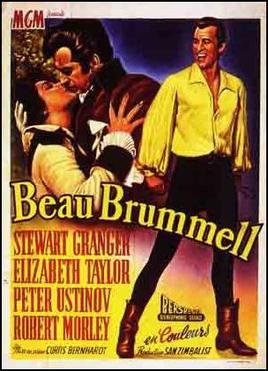
Beau Brummell is a 1954 British historical film released by Metro-Goldwyn-Mayer. It was directed by Curtis Bernhardt and produced by Sam Zimbalist from a screenplay by Karl Tunberg, based on the 1890 play Beau Brummell by Clyde Fitch. The play was previously adapted as a silent film made in 1924 and starring John Barrymore as Beau Brummell, Mary Astor, and Willard Louis as the Prince of Wales.
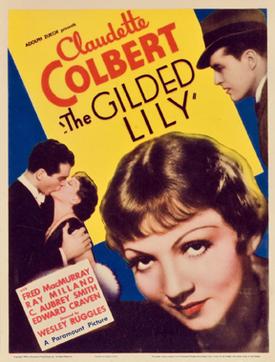
The Gilded Lily is a 1935 American romantic comedy film directed by Wesley Ruggles and starring Claudette Colbert, Fred MacMurray, Ray Milland, and C. Aubrey Smith. The production's screenplay, written by Claude Binyon, is about a stenographer who becomes a famous café entertainer courted by an English aristocrat and an American newspaper reporter. Released by Paramount Pictures in the United States on January 25, 1935, the film is one of the English language films chosen by the National Board of Review for its top-10 list of 1935. The Gilded Lily is also the first of seven films in which Claudette Colbert and Fred MacMurray costar.

Arise, My Love is a 1940 American romantic comedy film directed by Mitchell Leisen and starring Claudette Colbert, Ray Milland and Dennis O'Keefe. It was made by Paramount Pictures and written by Billy Wilder, Charles Brackett and Jacques Théry. Containing an interventionist message, it tells the love story of a pilot and a journalist who meet in the latter days of the Spanish Civil War and follows them through the early days of World War II. Colbert once said that Arise, My Love was her personal favorite motion picture of all the films she had made.

Polly of the Circus is a 1932 American pre-Code MGM drama film directed by Alfred Santell and starring Marion Davies and Clark Gable.
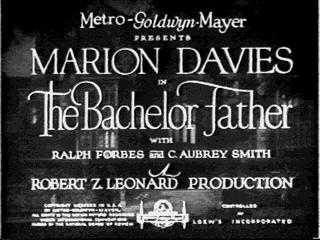
The Bachelor Father is a 1931 American pre-Code MGM comedy drama film directed by Robert Z. Leonard and starring Marion Davies and featuring Ralph Forbes, C. Aubrey Smith, Ray Milland and Guinn "Big Boy" Williams. It was based on a same-titled play by Edward Childs Carpenter, with Smith re-creating his role from the Broadway production. The plot centers around a stuffy British nobleman whose three grown children suddenly arrive at his estate and decide to move in with him.

That Forsyte Woman is a 1949 American romantic drama film directed by Compton Bennett and starring Greer Garson, Errol Flynn, Walter Pidgeon, Robert Young and Janet Leigh. It is an adaptation of the 1906 novel The Man of Property, the first book in The Forsyte Saga by John Galsworthy.
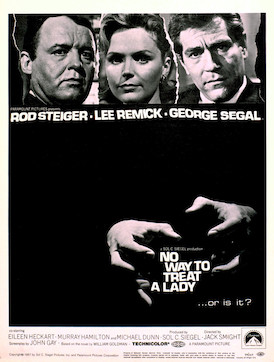
No Way to Treat a Lady is a 1968 American psychological thriller film with elements of black comedy, directed by Jack Smight, and starring Rod Steiger, Lee Remick, George Segal, and Eileen Heckart. Adapted by John Gay from William Goldman's 1964 novel of the same name, it follows a serial killer in New York City who impersonates various characters in order to gain the trust of women before murdering them.

Little Lord Fauntleroy is a 1936 American drama film based on the 1886 novel of the same name by Frances Hodgson Burnett. The film stars Freddie Bartholomew, Dolores Costello, and C. Aubrey Smith. The first film produced by David O. Selznick's Selznick International Pictures, it was the studio's most profitable film until Gone with the Wind. The film is directed by John Cromwell.

Irene is a 1940 American musical film produced and directed by Herbert Wilcox. The screenplay by Alice Duer Miller is based on the libretto of the 1919 stage musical Irene by James Montgomery, who had adapted it from his play Irene O'Dare. The score features songs with music by Harry Tierney and lyrics by Joseph McCarthy.
A gigolo is a male escort or social companion who is supported by a person in a continuing relationship.
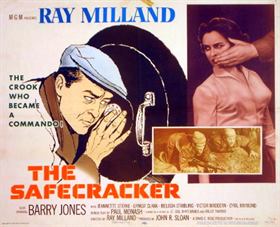
The Safecracker is a 1958 British crime film noir directed by Ray Milland and starring Milland, Barry Jones and Victor Maddern.
Dance Pretty Lady is a 1931 British drama film directed by Anthony Asquith and starring Ann Casson, Carl Harbord, Michael Hogan, Moore Marriott and Flora Robson. It was based on the 1912 novel Carnival by Compton Mackenzie. The novel was subsequently remade as a 1946 film Carnival.

Free and Easy is a 1941 American comedy film directed by George Sidney and starring Robert Cummings, Ruth Hussey, Judith Anderson and Nigel Bruce. Produced by Metro-Goldwyn-Mayer, the film is a remake of But the Flesh Is Weak (1932) in which Robert Montgomery and C. Aubrey Smith had appeared as the son-and-father team. Both films are based on the 1928 play The Truth Game by Ivor Novello.
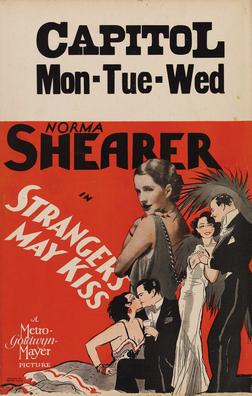
Strangers May Kiss is a 1931 American pre-Code drama film produced and released by Metro-Goldwyn-Mayer and noncredit-directed by George Fitzmaurice. The movie stars Norma Shearer, Robert Montgomery and Neil Hamilton. The movie was an adaptation of the book Strangers May Kiss, which was written by Ursula Parrott.
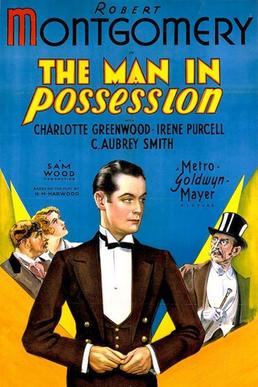
The Man in Possession is a 1931 American pre-Code romantic comedy film starring Robert Montgomery, Charlotte Greenwood, Irene Purcell, and C. Aubrey Smith, based on the play of the same name by H. M. Harwood. The black sheep of a family finds himself falling in love with the wealthy woman his brother is seeking to marry.

But the Flesh Is Weak is a 1932 American pre-Code comedy film directed by Jack Conway and written by Ivor Novello based on his 1928 play The Truth Game. The film stars Robert Montgomery, Nora Gregor, Heather Thatcher, Edward Everett Horton, C. Aubrey Smith and Nils Asther. The film was released on April 9, 1932, by Metro-Goldwyn-Mayer. But the Flesh Is Weak was remade in 1941 as Free and Easy.
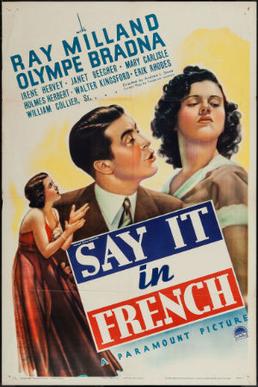
Say It in French is a 1938 American comedy film directed by Andrew L. Stone and written by Frederick J. Jackson. The film stars Ray Milland, Olympe Bradna, Irene Hervey, Janet Beecher, Mary Carlisle and Holmes Herbert. The film was released on November 28, 1938, by Paramount Pictures.


















